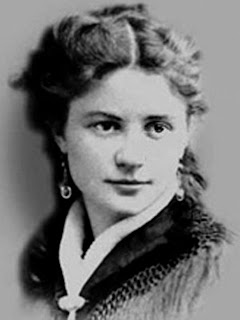002. Sof'ja Alekseevna / Софья Алексеевна

N. N. Golicyn (231-33) lists Carevna Sof'ja Alekseevna (1657-1704) , daughter of tsar Aleksej Michajlovič and elder half-sister of Peter the Great, as one of the earliest female authors in Russia. In his very brief outline of Sof'ja Alekseevna's dramatic biography, Golicyn notes that she ruled with Peter from 1682 to 1689, became a nun under the name of “Susanna” in 1698, and died, a nun of highest rank, in Moscow's Novodevičij Convent, where she was buried.[1] Golicyn skips over many well-known details: Sof'ja Alekseevna was the regent of Russia during the early years of young Peter's reign and entered into open (and armed) conflict with him in an attempt to become sovereign herself. The Carevna's defeat in 1689 was followed by her incarceration in the Novodevičij Convent; she took monastic orders only a decade later in 1698 -- in the wake of an unsuccessful rebellion by the Strel'cy (members of the musketeer regiments that constituted Russia...


